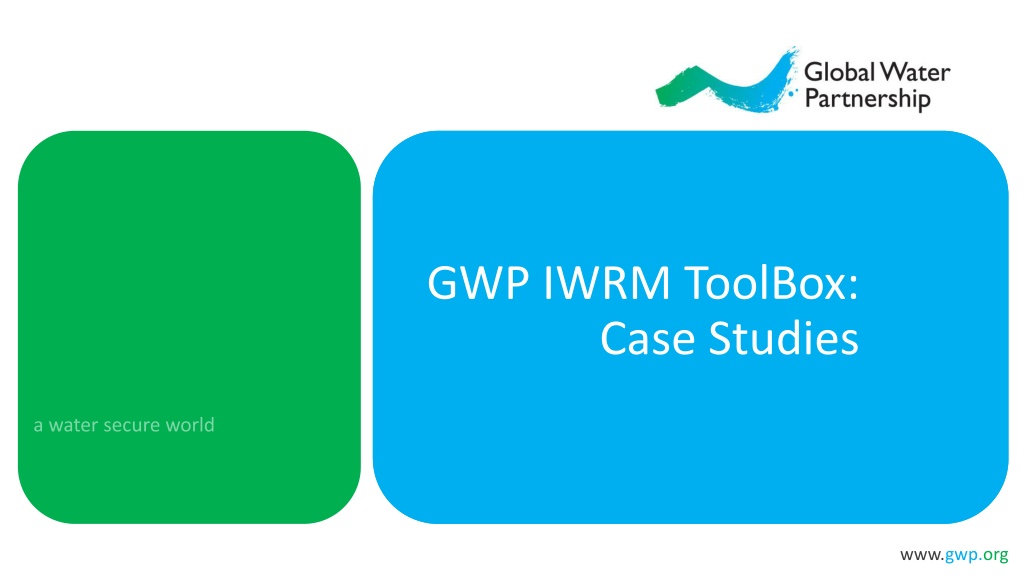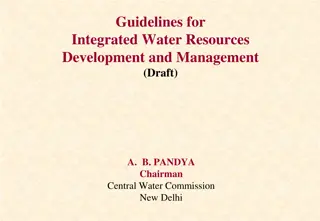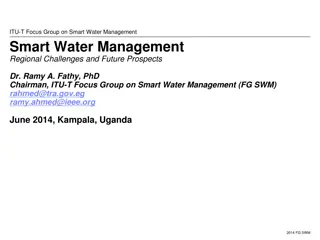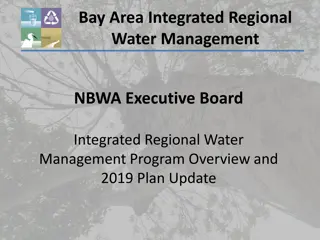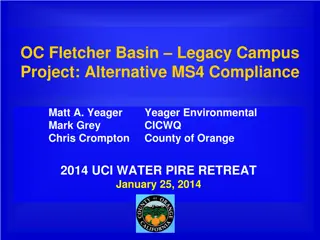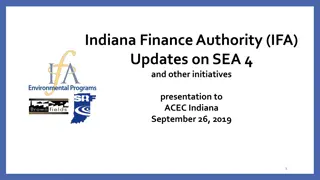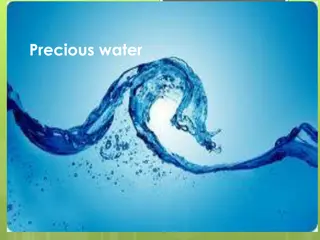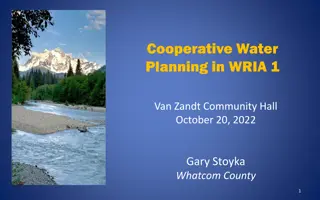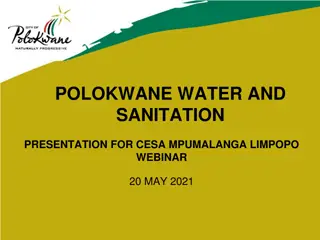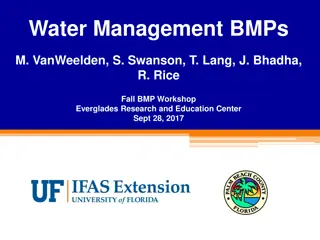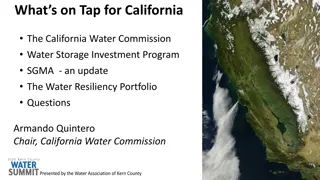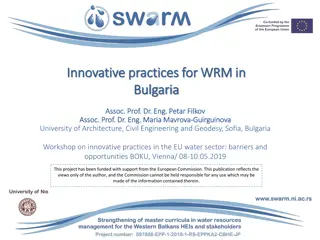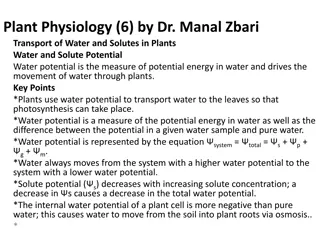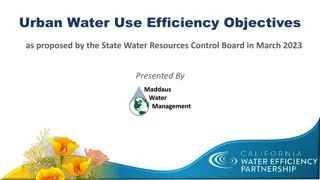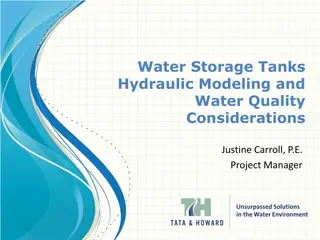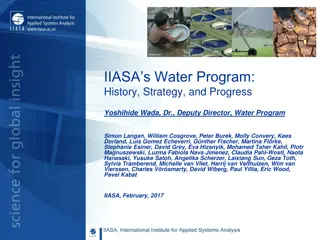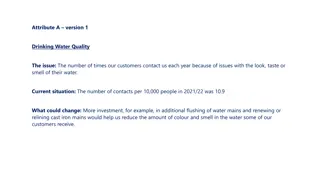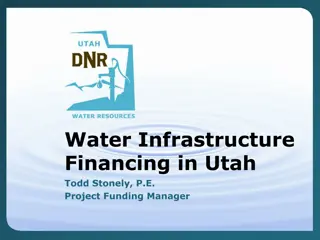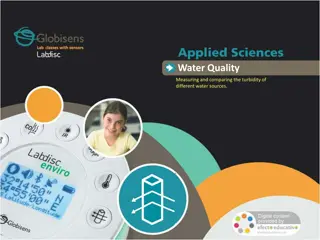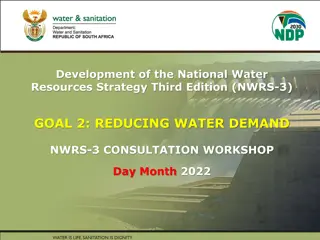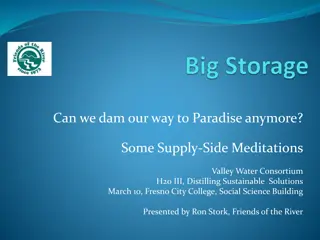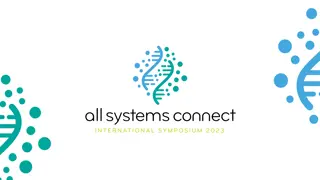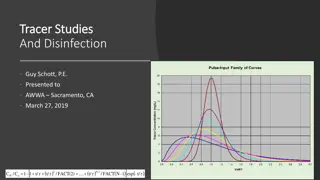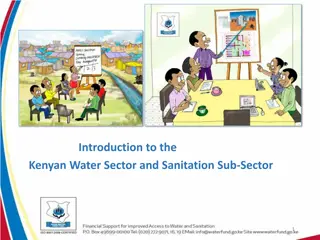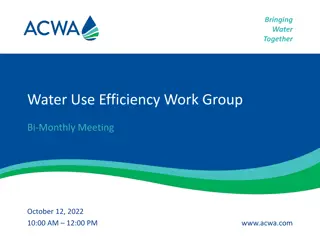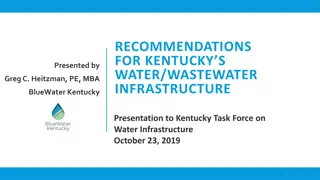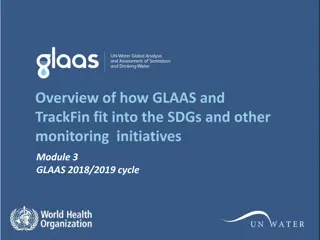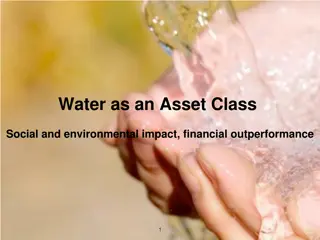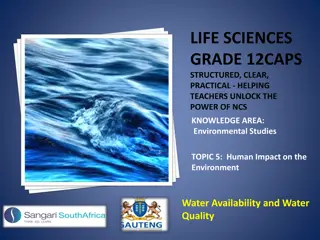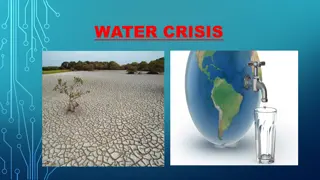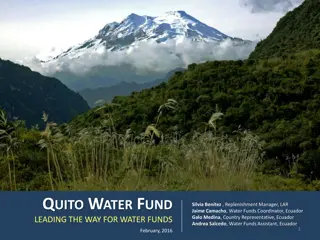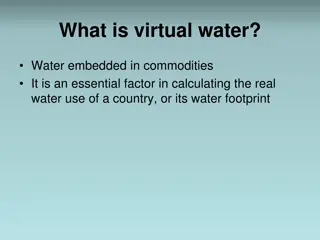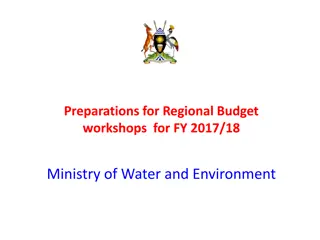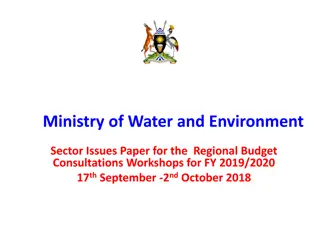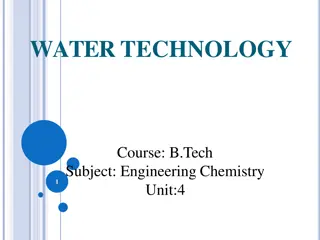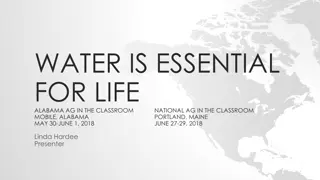Understanding Case Studies in Integrated Water Resource Management
Case studies in Integrated Water Resource Management (IWRM) provide valuable insights, examples, successes, and failures from around the world on how tools and practices are applied in real-life scenarios. These studies critically examine practical experiences, making them essential for trainers, capacity builders, decision-makers, practitioners, academia, and researchers involved in IWRM. Case studies in the IWRM Toolbox cover a range of topics and are categorized by continents/regions for easy access. They illustrate the practical application of tools rather than theoretical concepts, making them a valuable resource for understanding water management strategies.
Download Presentation

Please find below an Image/Link to download the presentation.
The content on the website is provided AS IS for your information and personal use only. It may not be sold, licensed, or shared on other websites without obtaining consent from the author. Download presentation by click this link. If you encounter any issues during the download, it is possible that the publisher has removed the file from their server.
E N D
Presentation Transcript
GWP IWRM ToolBox: Case Studies www.gwp.org
What are Case Studies? What are Case Studies? The IWRM ToolBox consists of knowledge (how to manage water) and learning (applying the knowledge): Knowledge Learning 60 Tools References Case Studies technical papers to training manuals to research documents to articles an array of resources linked to specific Tools and Case Studies show how the Tools work in real experiences from all over the world. They include successes and failures and share best practices. the key concepts that have to be addressed in managing water www.gwp.org GWP Case Studies
What are Case Studies? What are Case Studies? Critically examine real events and practical experience Implement IWRM LEARN www.gwp.org GWP Case Studies
Who are the Case Studies For? Who are the Case Studies For? Those who apply IWRM: trainers capacity-builders practitioners decision-makers academia and researchers www.gwp.org GWP Case Studies
Case Studies in the ToolBox Case Studies in the ToolBox Though the case studies are not explicitly within the IWRM Toolbox, each Tool has related case studies: Case studies can also be accessed through Learn under Knowledge Resources, and are arranged into continents/regions: www.gwp.org GWP Case Studies
Case Studies in the ToolBox: an example Case Studies in the ToolBox: an example Each Case Study has: Link to the full length case study (8-10 pages) Contact information to learn more 1 page summary www.gwp.org GWP Case Studies
Case Studies in the ToolBox: Contributing Case Studies in the ToolBox: Contributing Do you have a case study to contribute? 1. Check out the guidelines 2. Submit a proposal! www.gwp.org GWP Case Studies
Case Study Criteria Case Study Criteria Case studies should Case studies are not Based on theory rather than practice Illustrate the application of tools shown in the ToolBox Be relevant to IWRM with lessons about how an IWRM approach supports water management across sectors Academic Reflect both successes and failures Subjective Address main issues of concern to the water community Be applicable to a wide audience www.gwp.org GWP Case Studies
Case Study Format Case Study Format 1. Description of the Problem 2. Actions Taken 3. Key Outcomes 4. Lessons Learned 8-10 pages Contact information www.gwp.org GWP Case Studies
The GWP Knowledge Search The GWP Knowledge Search Looking for a case study on something specific? Just choose Case Study! Search by: Key words Region (13 regions, or global) Type of publication (16 options) Year published (2000-now) Topic (12 options) Language (11 languages) www.gwp.org GWP Case Studies
Thanks! Questions? Contact gwp@gwp.org www.gwp.org
